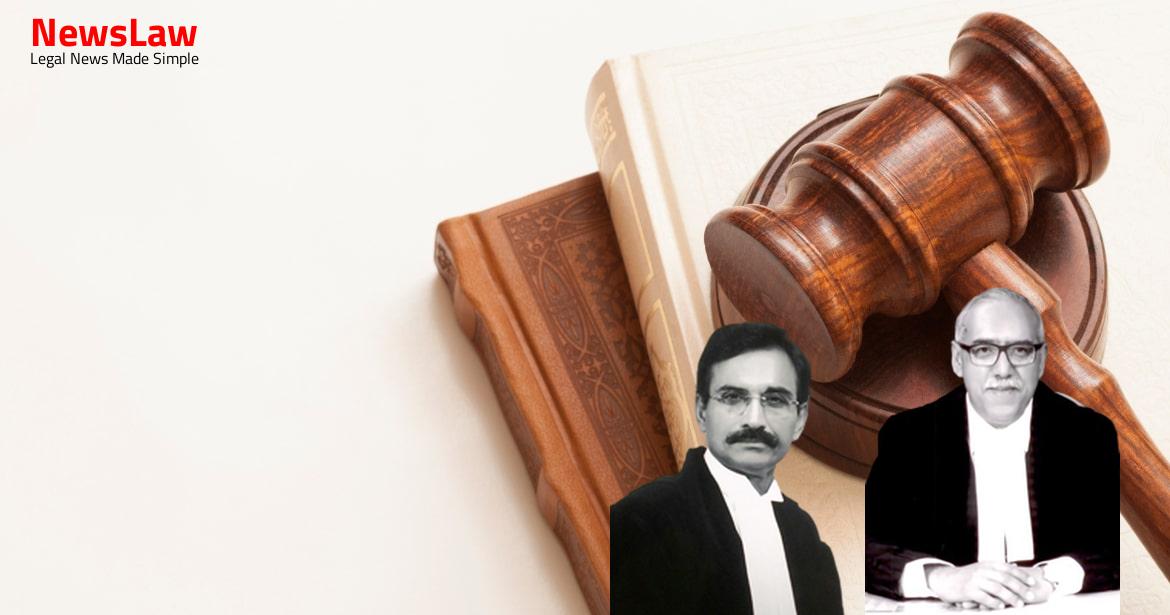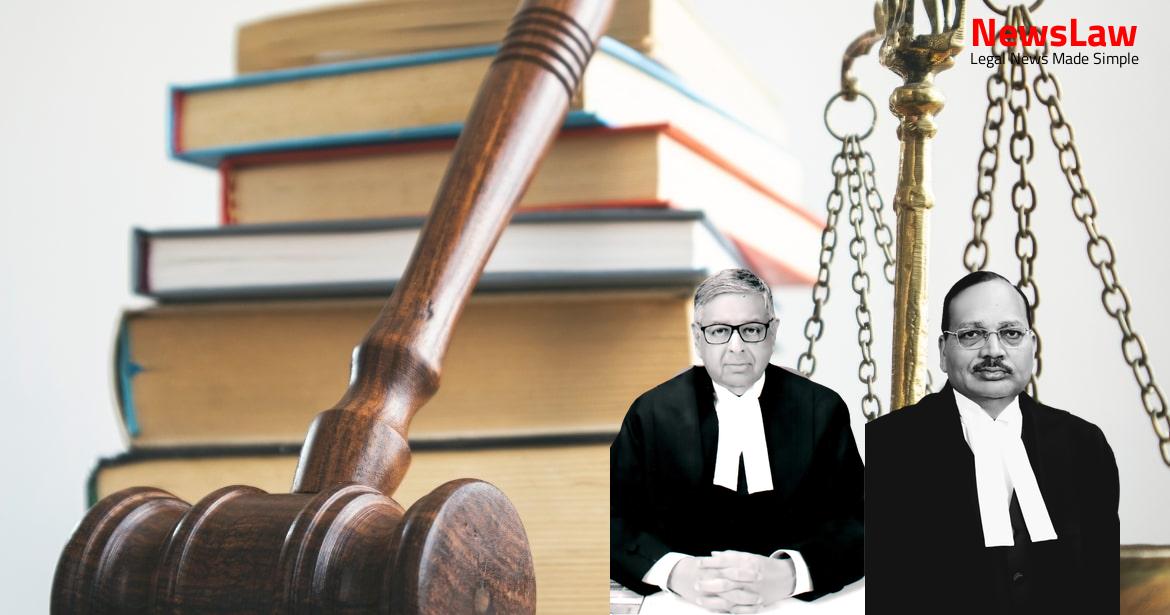The case of Nilu Suicide revolves around the quashing of criminal proceedings against Respondent Nos. 1-3, who were accused of harassing the deceased, leading to her tragic suicide. The Petitioner, seeking justice for the deceased Nilu and her children, filed a complaint that ultimately led to a complex legal battle. Explore the details of this case and the implications of the High Court’s decision on the proceedings.
Facts
- Respondent No.1 filed a false complaint against the Appellant and his parents due to dissatisfaction over land given by the Appellant’s father to her husband.
- Complaint about the incident was made to the Police Station on 07.05.2014.
- There were quarrels between Respondent No.1 to 3 and the deceased Nilu leading to a settlement at the Police Station initially.
- Respondent No.1 to 3 later assaulted the deceased Nilu after the settlement.
- A criminal proceeding against Respondent No.1 and 3 was quashed by the High Court under Section 482 of the CrPC.
- The Appellant filed a complaint leading to FIR No.285 of 2014 on 08.05.2014 regarding harassment by Respondent No.1 and her brothers.
- The harassment led to the suicide of Nilu and her two children.
- A final report was filed on 19.07.2014 after investigation.
- Petition filed by Respondent Nos. 1-3 for quashing the criminal proceeding was allowed by the High Court.
- The High Court noted that the statements recorded under Section 161 CrPC depicted Respondent No.1 as a quarrelsome lady who threatened the Appellant’s family with false implication in a criminal case.
- Allegations against Respondent Nos.1-3 were considered to potentially constitute an offense under Section 506 IPC for criminal intimidation.
- The High Court did not find evidence to hold the Respondents guilty of Section 306 offense as there was no indication that they incited the deceased to commit suicide.
- The investigation records and statements under Section 161 CrPC were reviewed by the High Court.
- No mention of the deceased’s suicidal thoughts due to harassment by Respondent Nos. 1-3 was found in the statements recorded.
- The uncle of the deceased stated in his Section 161 statement that she expressed inability to bear the torture by Respondent Nos. 1-3 and contemplated suicide.
- The accusations against Respondent Nos. 1-3 collectively did not establish an offense under Section 306/34 IPC as per the High Court’s findings.
- The High Court concluded that the criteria of Section 107 IPC were not met based on the evidence presented.
Also Read: State of Karnataka v. [Respondent]
Arguments
- Mr. Shoeb Alam, learned counsel for the Respondents, cited judgments to argue that the allegations only indicate harassment towards the deceased.
- The counsel further argued that the essential element of instigation, as defined in Section 107 IPC, is lacking in the Appellant’s complaint.
- There is no evidence to prove that the Respondents abetted the deceased’s suicide.
- The elements of Section 306 and 107 IPC have not been satisfied.
- The argument made on behalf of the Respondents is that if the allegations against them are not prima facie made out, they should not face a criminal trial.
- The court does not agree with the arguments made on behalf of the Respondents.
- The High Court’s decision to quash the criminal proceedings was based on its assessment of the witness statements recorded under Section 161 of the CrPC.
- Witness statements recorded under Section 161 of the CrPC are inadmissible in evidence and cannot be considered by the court during the adjudication of a petition filed under Section 482 of the CrPC.
Also Read: Legal Analysis of Entrance Exam Regulations in AYUSH Courses
Analysis
- The High Court erred in quashing the proceedings based on a witness statement indicating the deceased’s suicidal intentions due to harassment from the Respondents.
- Exercise of power under Section 482 CrPC to quash criminal proceedings is limited to cases where the allegations in the FIR or charge sheet meet the requirements of the offense alleged.
- The High Court’s decision to quash the proceedings prematurely deprived Respondent Nos.1 to 3 of the opportunity to prove their innocence in a full trial.
- Interference under Section 482 CrPC is meant to prevent abuse of the legal process and ensure justice.
- At the initial stage, the court should not consider the evidence produced by the accused, except in exceptional circumstances.
- The High Court is not to assess evidence when deciding on a petition under Section 482 CrPC to quash criminal proceedings.
- According to established law, if a prima facie case showing the offense’s elements against the accused is made, the court cannot quash the criminal proceeding.
- Section 161 Cr. P.C. requires for a police officer to record statements during the course of investigation.
- The statements recorded under Section 161 Cr. P.C. are crucial pieces of evidence in criminal proceedings.
- The veracity and accuracy of the statements recorded under Section 161 Cr. P.C. play a significant role in determining the outcomes of the case.
- It is essential to ensure that the statements recorded under Section 161 Cr. P.C. are truthful and reliable.
Also Read: Challenging Foreign Contribution Regulations: Legal Analysis
Case Title: RAJEEV KOURAV Vs. BAISAHAB (2020 INSC 168)
Case Number: Crl.A. No.-000232-000232 / 2020



